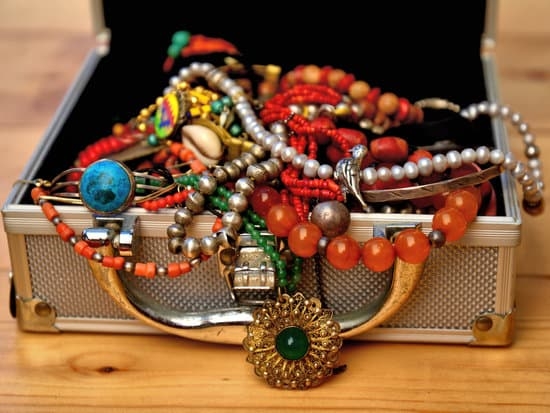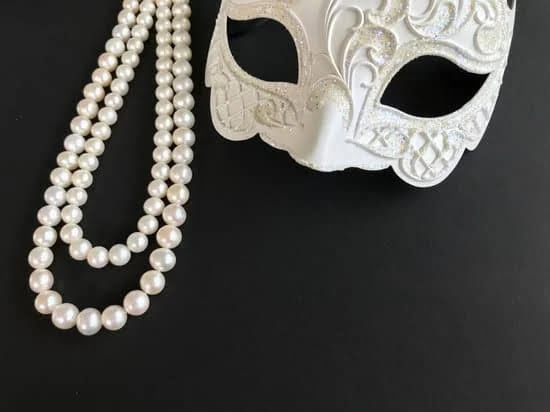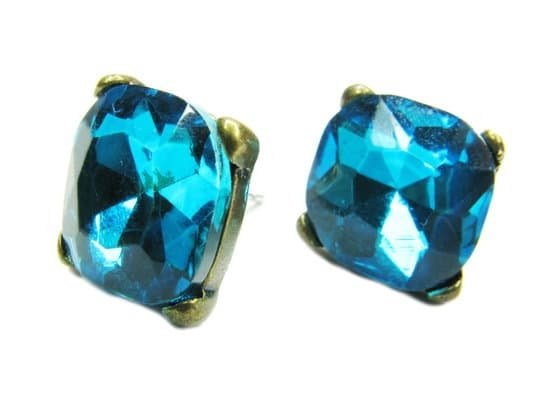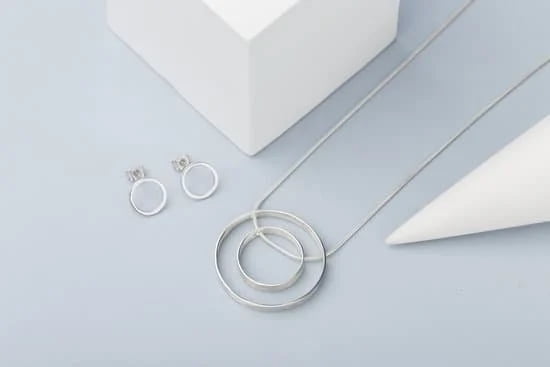Is it fine to keep jewelry on in the shower? This is a common question that many jewelry enthusiasts ponder, as they weigh the convenience of keeping their favorite pieces on against the potential risks of exposing them to water, soap, and shampoo.
In this article, we will explore the idea of whether it is safe and advisable to keep jewelry on in the shower, delving into the potential impact on different types of metals and gemstones. We will also provide practical tips for keeping jewelry safe in the shower and offer alternative methods for cleaning and maintaining your beloved pieces.
Showering with jewelry has become a topic of debate among individuals who are accustomed to wearing their favorite pieces at all times. However, there are valid concerns regarding the potential damage that can occur when jewelry comes into contact with water and cleansing products. From tarnishing metals to causing harm to gemstones, there are several risks associated with wearing jewelry in the shower that warrant careful consideration.
As we delve deeper into this discussion, we will examine how different types of metal, including gold, silver, and stainless steel, can be impacted by water and soap exposure. Additionally, we will also explore the potential harm that can come to gemstones and diamonds when exposed to these elements while being worn in the shower. By understanding these risks, individuals can make informed decisions about whether it is appropriate to keep their jewelry on during their daily hygiene routines.
The Risks of Showering With Jewelry
When it comes to showering with jewelry on, there are several risks and potential damage that can occur when exposed to water, soap, and shampoo. It is not advisable to keep jewelry on in the shower as it can lead to tarnishing, discoloration, and even permanent damage to certain types of jewelry. For instance, exposure to soaps and shampoos can create a film over the surface of the jewelry, leading to a dull appearance and potentially causing long-term damage.
Different types of metals commonly used in jewelry are also at risk when worn in the shower. For example, gold jewelry may become discolored or stained due to exposure to chemicals in soaps and shampoos. Silver jewelry is particularly susceptible to tarnishing when exposed to water and air. Even stainless steel can corrode over time if regularly exposed to water.
Furthermore, gemstones and diamonds can also be negatively affected by being worn in the shower. Some gemstones are porous in nature and can absorb water, leading to discoloration or structural damage over time. Similarly, diamonds may lose their luster when repeatedly exposed to soaps and shampoos.
In order to protect your jewelry from these potential damages while still enjoying the convenience of keeping it on during showering, it is best practice to remove all types of jewelry before entering the shower. By following this guideline, you can ensure that your precious pieces remain in good condition for years to come.
| Risks | Potential Damage |
|---|---|
| Tarnishing | Discoloration |
| Corrosion | Structural Damage |
Impact on Different Types of Metal
When it comes to keeping jewelry on in the shower, it is essential to consider the impact of water and soap on different types of metal commonly used in jewelry. While it may be convenient to leave your favorite pieces on while washing, there are potential risks to be aware of. The effect of water and soap can vary depending on the type of metal, with some being more susceptible to damage than others.
Gold
Gold is a popular choice for jewelry due to its durability and resistance to tarnishing. However, exposure to water and soap can still have a negative impact on gold jewelry over time. Soap residue can build up in intricate designs or settings, leading to discoloration or dullness. Additionally, prolonged exposure to water can weaken the metal and cause it to become more prone to scratches or dents.
Silver
Silver is known for its lustrous shine, but it is also more susceptible to tarnishing when exposed to moisture and chemicals. Showering with silver jewelry can accelerate the tarnishing process, causing it to appear dull or discolored. Water can also seep into small crevices or chains, leading to corrosion over time.
Stainless Steel
Stainless steel is often chosen for its affordability and resistance to rust and corrosion. While it may seem more resilient than other metals, prolonged exposure to water and soap in the shower can still cause stainless steel jewelry to lose its luster over time. Soap residue can accumulate in links or clasps, leading to a loss of shine or even discoloration.
Overall, while many metals used in jewelry are durable, showering with them regularly can lead to gradual wear and tear that affects their appearance over time. It is important for individuals who enjoy wearing their jewelry in the shower to weigh these risks against their convenience in order o make an informed decision about whether keeping jewelry on in the shower is fine for them.
Effect on Gemstones and Diamonds
When it comes to wearing jewelry in the shower, it’s important to consider the potential harm that can come to gemstones and diamonds. While some may believe that these precious stones are resistant to damage, exposing them to water, soap, and shampoo can actually have negative effects on their appearance and longevity.
Impact of Water and Chemicals on Gemstones
Gemstones such as pearls, opals, and emeralds are particularly sensitive to water and chemicals. Over time, prolonged exposure to moisture can cause these stones to lose their luster and develop a dull appearance. Additionally, certain chemicals found in shampoos and soaps can react adversely with the surface of these gemstones, leading to discoloration or etching.
Potential Damage to Diamonds
While diamonds are known for their durability, they are not impervious to damage in the shower. The build-up of soap scum or residue from hair products can cloud the brilliance of diamonds over time. Additionally, if a diamond is set in prongs or other settings that are weakened by moisture exposure, there is a risk of the stone becoming loose and falling out.
It is fine to keep jewelry on.in the shower occasionally but doing so regularly can accelerate wear and tear on both the metal and the gemstones. To protect your precious jewelry from damage in the shower, it’s best to remove them before entering the bathroom. By taking this simple precaution, you can ensure that your jewelry maintains its beauty and value for years to come.
Tips for Keeping Jewelry Safe in the Shower
Showering with jewelry on can be a convenient way to ensure that you don’t forget to put it back on after getting ready. However, it’s important to consider the potential risks and take precautions to protect your jewelry from damage. Water, soap, and shampoo can all have adverse effects on different types of jewelry, so it’s essential to be mindful of how you care for your accessories in the shower.
One of the main considerations when deciding whether to keep jewelry on in the shower is the impact on different types of metal. While stainless steel is generally resistant to tarnishing and corrosion, gold and silver jewelry can be more susceptible to damage from exposure to water and soap.
Over time, these metals can become discolored or tarnished if not properly cared for after exposure to moisture. It’s important to consider the specific properties of each type of metal in your jewelry collection when making the decision.
In addition to considering the impact on metals, it’s crucial to think about how gemstones and diamonds may be affected by showering with jewelry on. Gemstones can vary widely in their durability and resilience, with some being more prone to damage from exposure to water than others. For example, porous gemstones like opals or pearls can be negatively impacted by prolonged contact with water.
Similarly, diamonds could potentially become loose or damaged if worn in the shower over an extended period. Therefore, it is advisable to assess each piece of jewelry individually before deciding whether it should be worn during showers.
| Types of Metals | Impact |
|---|---|
| Stainless Steel | Resistant to tarnishing and corrosion but regular cleaning is still recommended. |
| Gold & Silver | Prone to discoloration or tarnishing from exposure to water and soap. |
Best Practices for Cleaning Jewelry
When it comes to keeping jewelry clean, many people wonder if it is safe to clean their jewelry in the shower. While it may seem convenient to keep your jewelry on while showering, there are potential risks and damage that can occur when exposing your jewelry to water, soap, and shampoo. Here are some best practices for safely cleaning and maintaining your jewelry without the risk of damage in the shower:
- Remove Jewelry Before Showering: The safest practice for preserving the condition of your jewelry is to remove it before stepping into the shower. This prevents exposure to water, soap, and chemicals that can cause tarnishing, discoloration, or damage.
- Use a Gentle Jewelry Cleaning Solution: If you prefer to clean your jewelry while showering, consider using a gentle jewelry cleaning solution specifically designed for delicate metals and gemstones. Avoid harsh soaps or shampoos that can be abrasive and harmful to your jewelry.
- Avoid Wearing Jewelry with Gemstones: Certain gemstones can be more susceptible to damage from water and soap. It’s best to avoid wearing jewelry with porous gemstones or those with fragile settings in the shower to prevent potential harm.
While it might be convenient to keep your jewelry on in the shower, taking extra precautions by removing them before showering or using gentle cleaning solutions can help ensure that your precious pieces remain in good condition for years to come.
Remember that proper care and maintenance are essential for preserving the beauty and quality of your jewelry items. By following these best practices for cleaning and maintaining your jewelry, you can enjoy wearing them while also keeping them safe from unnecessary harm.
The Importance of Proper Jewelry Care
When it comes to taking care of your jewelry, proper maintenance and caution are essential for ensuring that your pieces remain in good condition for years to come. This is especially true when it comes to the question of whether it is fine to keep jewelry on in the shower. While it may be convenient to leave your jewelry on while you shower, there are significant risks involved that can lead to damage over time.
To emphasize the significance of taking care of your jewelry, consider the following tips and best practices:
- Remove all jewelry before entering the shower: The combination of water, soap, and shampoo can cause significant damage to various types of metals and gemstones. To avoid this risk altogether, it’s best to simply remove your jewelry before stepping into the shower.
- Invest in a small travel case or dish for safekeeping: Rather than leaving your jewelry on bathroom surfaces where they can easily get lost or damaged, consider investing in a small travel case or dish where you can safely store your pieces before showering.
- Clean and maintain your jewelry regularly: Instead of exposing your precious pieces to potential harm in the shower, make it a habit to clean and maintain them regularly using appropriate cleaning methods and solutions. This will help ensure that they remain in good condition without unnecessary exposure to water and chemicals.
By following these simple yet effective tips, you can ensure that your jewelry remains in good condition for years to come, avoiding unnecessary damage from activities such as showering. Proper care and caution are key to preserving the beauty and longevity of your favorite pieces.
Conclusion
In conclusion, the decision of whether to keep jewelry on in the shower ultimately depends on the type of jewelry and personal preferences. While some types of jewelry may be able to withstand the exposure to water, soap, and shampoo without significant damage, others are more susceptible to tarnishing or other forms of harm. It is important to consider the metal and gemstone composition of each piece before making a decision.
Ultimately, it is generally not advisable to keep jewelry on in the shower. Water, soap, and shampoo can have damaging effects on various metals commonly used in jewelry, such as gold, silver, and stainless steel. In addition, gemstones and diamonds may also suffer harm when exposed to these substances over time. It is crucial to prioritize proper care and maintenance for valuable pieces in order to preserve their appearance and longevity.
In light of these considerations, it is best practice to remove all jewelry before entering the shower. By doing so, individuals can avoid potential damage while still enjoying the convenience of keeping their precious pieces safe from harm. Additionally, taking the time to properly clean and maintain jewelry outside of the shower will ensure that it remains in good condition for years to come.
Frequently Asked Questions
Is It OK to Shower With Jewelry On?
It is generally not recommended to shower with jewelry on. Soap and shampoo can leave a residue on the jewelry, dulling its appearance over time. Additionally, some metals and gemstones can be damaged by the water and heat in the shower.
Is It Bad to Keep Jewelry on All the Time?
Keeping jewelry on all the time can lead to wear and tear, especially with rings and bracelets that come into regular contact with hard surfaces. Continuous wear can also result in a buildup of dirt, lotions, and oils which can diminish the shine and beauty of the jewelry.
Why Can’t You Wear Jewelry in Water?
Jewelry should not be worn in water because it can easily get lost or damaged. Chlorine in pools, saltwater in the sea, and chemicals in hot tubs can all harm certain types of jewelry.
Additionally, water exposure can loosen prongs on settings or degrade adhesives used to hold gems in place. For these reasons, it’s best to remove jewelry before swimming or bathing.

Welcome to my jewelry blog! My name is Sarah and I am the owner of this blog.
I love making jewelry and sharing my creations with others.
So whether you’re someone who loves wearing jewelry yourself or simply enjoys learning about it, be sure to check out my blog for insightful posts on everything related to this exciting topic!





